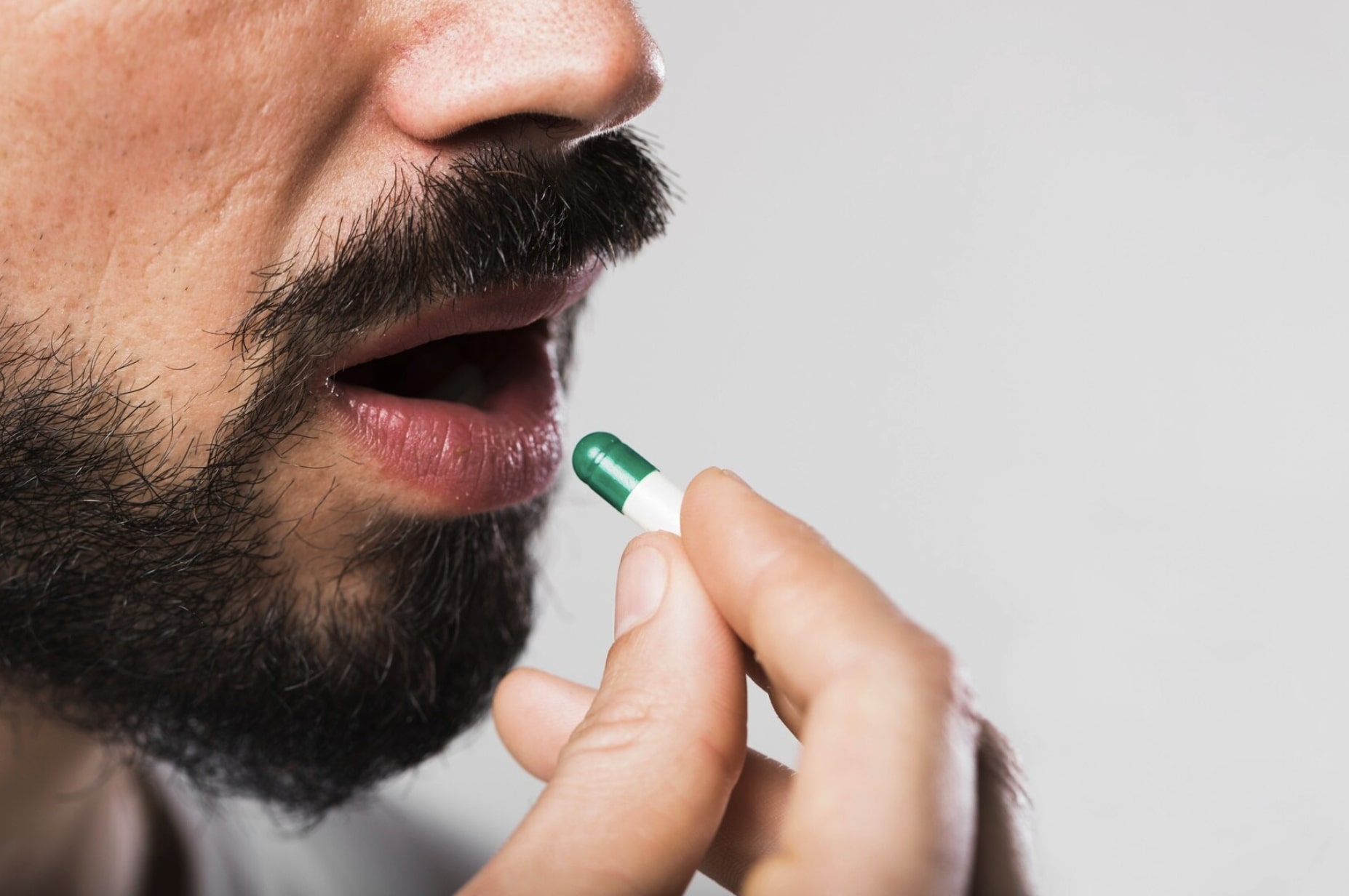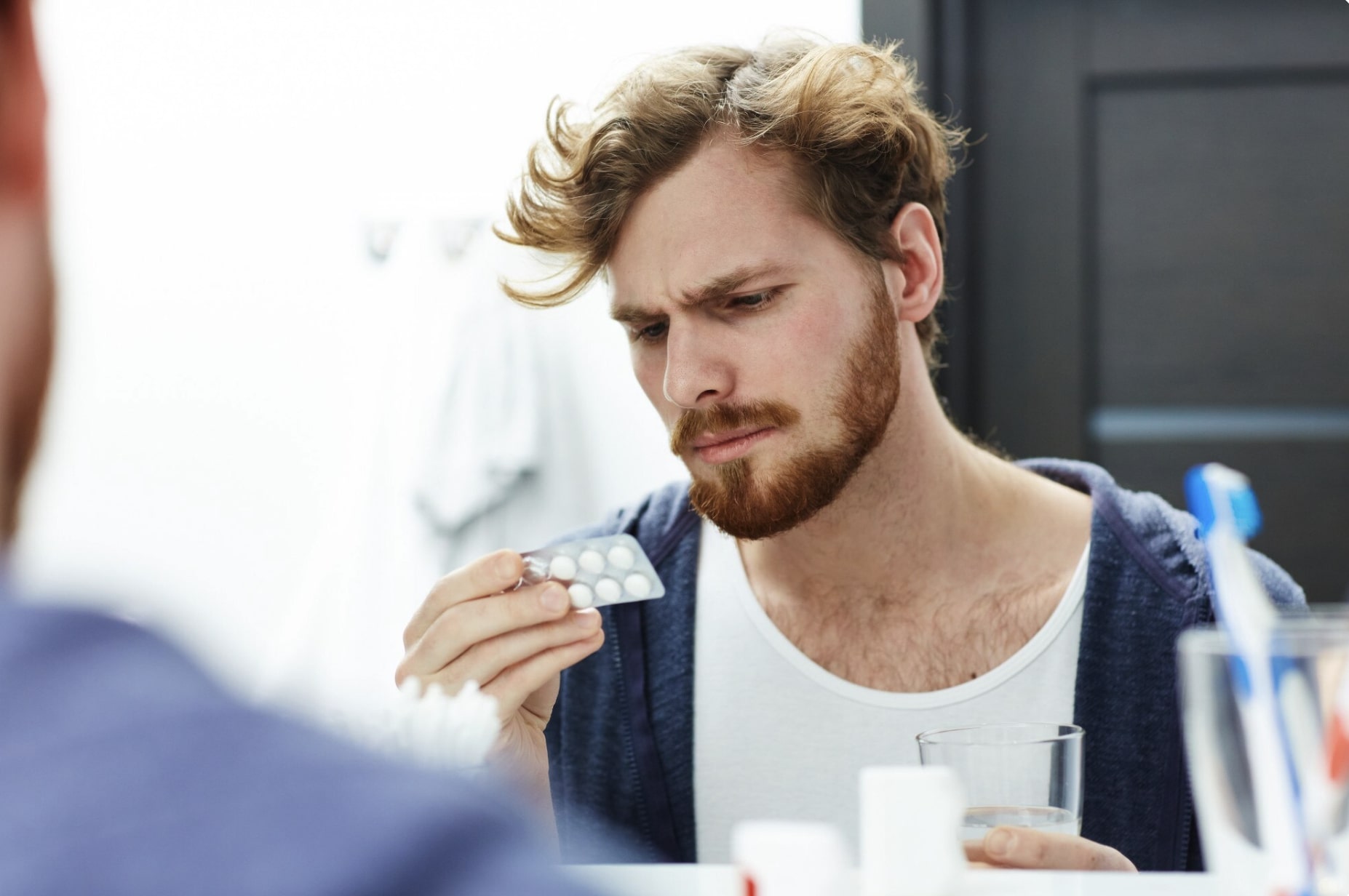When it comes to testosterone, most men are focused on how to boost their levels to ensure optimal performance. But just as important as what you do to increase testosterone is knowing what you might be doing that’s quietly dragging it down. Specifically, your diet and food intake can play a huge role in your testosterone levels, sometimes much more than you’d expect.Certain foods have been shown to interfere with the body’s hormone production, which can contribute to lower testosterone levels over time. If you're experiencing signs of low energy, reduced muscle mass, mood swings, or a declining sex drive, your diet might be part of the issue.In this guide, we’ll dive deeper into the importance of testosterone levels in men, and how nutrition can help or harm these levels. We’ll also provide specific examples of food that may be causing low T, and examine ways in which you can enrich your diet to naturally boost testosterone levels.
Why Testosterone Matters for Men
Testosterone drives much more than libido in men. It also plays a key role in maintaining lean muscle mass, regulating fat distribution, supporting energy levels, and fueling motivation levels. Testosterone even contributes to keeping mood and focus steady, as low testosterone levels can sometimes lead to depression. One study noted that 35-50% of men with low T have reported depressive symptoms (1)As men age, testosterone naturally begins to decline, with levels dropping around 1 percent every year after age 30. (2) But many lifestyle factors—including diet—can accelerate that process. Some research notes that men with unhealthy diets may have as much as five times the odds of experiencing hypogonadism than men with healthy eating habits. (3)Because of this, understanding what not to eat for maintaining testosterone levels is just as important as knowing what fuels it.
Common Foods That Lower Testosterone
Certain foods and ingredients can disrupt your body’s natural hormone balance. These hormone-disrupting foods are often hidden in everyday meals and snacks, which can make it difficult to manage your T levels if you aren’t careful. Here are some of the the most common offenders in a low testosterone diet:
Alcohol (Especially Excessive Intake)
While moderate alcohol consumption may not significantly impact hormone health, chronic or heavy drinking can impair liver function and disrupt the balance of testosterone and estrogen in the body. (4)The liver plays a key role in metabolizing hormones, and when it's overworked, testosterone can take a hit. Beer, in particular, contains phytoestrogens that may further affect testosterone levels.
Licorice Root
Found in certain candies, teas, and herbal supplements, licorice root contains a compound called glycyrrhizin. Some research suggests that glycyrrhizin can temporarily reduce testosterone levels by interfering with enzyme activity in the adrenal glands. (5)However, it’s important to note that only a substantial amount of licorice root consumption per day (around more than 7g daily) is likely to cause a decrease in testosterone. Therefore, occasional consumption, or even regular intake through concentrated supplements is unlikely to cause low T.
High-Sugar Diets and Refined Carbs
Excess sugar can wreak havoc on hormone health. Diets high in refined carbs and sugar can lead to frequent insulin spikes, promote weight gain, and contribute to chronic inflammation—all of which can reduce testosterone.Sugary beverages, desserts, white bread, and processed cereals can throw off metabolic balance and may play a key role in decreased testosterone over time.
How Diet Affects Hormone Balance
What you eat doesn’t just affect your waistline, it can profoundly influence your hormones. Testosterone production relies on a balance of healthy fats, adequate protein, and key micronutrients like zinc, magnesium, and vitamin D.Diets loaded with inflammatory foods or lacking in nutrient density can contribute to declining testosterone levels. For men navigating symptoms of low T, dietary changes are often the first line of defense. At Gameday Men’s Health, our licensed clinicians can help you adjust and implement a new diet to better balance your hormone levels. While other treatments for low T are effective and available, changing your diet may be the most straightforward solution in many cases. If you’re still feeling the effects of low T after a dietary change, contact your local Gameday Men’s Health location to see how testosterone replacement therapy (TRT) and peptide therapy can work alongside a better diet to restore hormonal health.
How to Support Healthy Testosterone Naturally
If you're wondering what to eat instead, the good news is that a testosterone-friendly diet can still be fulfilling and satisfying, even for men not used to adhering to a strict diet. To maximize the production of healthy, natural testosterone you can:
- Prioritize lean protein like grass-fed beef, chicken, eggs, and fish
- Include healthy fats from avocados, olive oil, and nuts
- Eat plenty of leafy greens and cruciferous vegetables like spinach, kale, and broccoli
- Add zinc-rich foods like pumpkin seeds, oysters, and lentils
- Increase your consumption of onions, which are a strong source of nutrients and antioxidants which may help increase testosterone levels (7)
Beyond food, regular exercise, consistent sleep, and managing stress all play a role in keeping testosterone at optimal levels. When combined with medical support through Gameday, lifestyle improvements can make a real impact.Unsure if what you’re dealing with is low testosterone or another condition? Check for signs of hypogonadism (low testosterone) before and after implementing dietary changes. If the symptoms ring a bell, it might be time to test your levels and explore testosterone replacement therapy (TRT) or other clinical support options available through Gameday Men’s Health.
Should I Get My Testosterone Levels Checked?
If you're constantly feeling tired, sluggish, or just not quite like yourself, it's worth taking a closer look at your hormone levels to see if that could be the issue. Many men, especially older men over 40, walk around with low testosterone for years without knowing the root cause of their symptoms.Schedule a consultation at your local Gameday clinic today to learn more about how your diet could be affecting testosterone levels, and begin your journey towards more optimized hormones with a free test.
FAQs
What foods are bad for testosterone?
Highly processed foods, sugary snacks, refined carbohydrates, excessive alcohol, and foods high in phytoestrogens—like soy and flaxseed—can negatively impact testosterone levels. These are considered hormone-disrupting foods and should be limited, especially in a low testosterone diet.
Is coffee bad for testosterone?
In moderation, coffee is not harmful to testosterone. In fact, some studies suggest that caffeine may support short-term testosterone increases.(8) However, overconsumption, especially with sugary creamers or syrups, can have the opposite effect.
Can diet fix low testosterone?
Diet can help support healthy testosterone levels, but it may not be enough on its own for all men, especially if your levels are already clinically low. Medical treatment, including testosterone replacement therapy, may be necessary for long-term balance.
What are better food choices to boost testosterone?
Focus on whole, nutrient-rich foods. Opt for lean proteins, healthy fats, zinc-rich options like beef and seeds, and cruciferous vegetables. These foods support natural testosterone production and overall hormone balance.References
- The association of hypogonadism with depression and its treatments
- Why Are Testosterone Levels Decreasing?
- Testosterone-Associated Dietary Pattern Predicts Low Testosterone Levels and Hypogonadism
- Effects of Alcohol on the Endocrine System
- Licorice consumption and serum testosterone in healthy man
- 6 Foods That Lower Testosterone Levels
- Testosterone-boosting foods
- Exploring the Impact of Coffee on Testosterone Levels: Separating Myths from Facts











